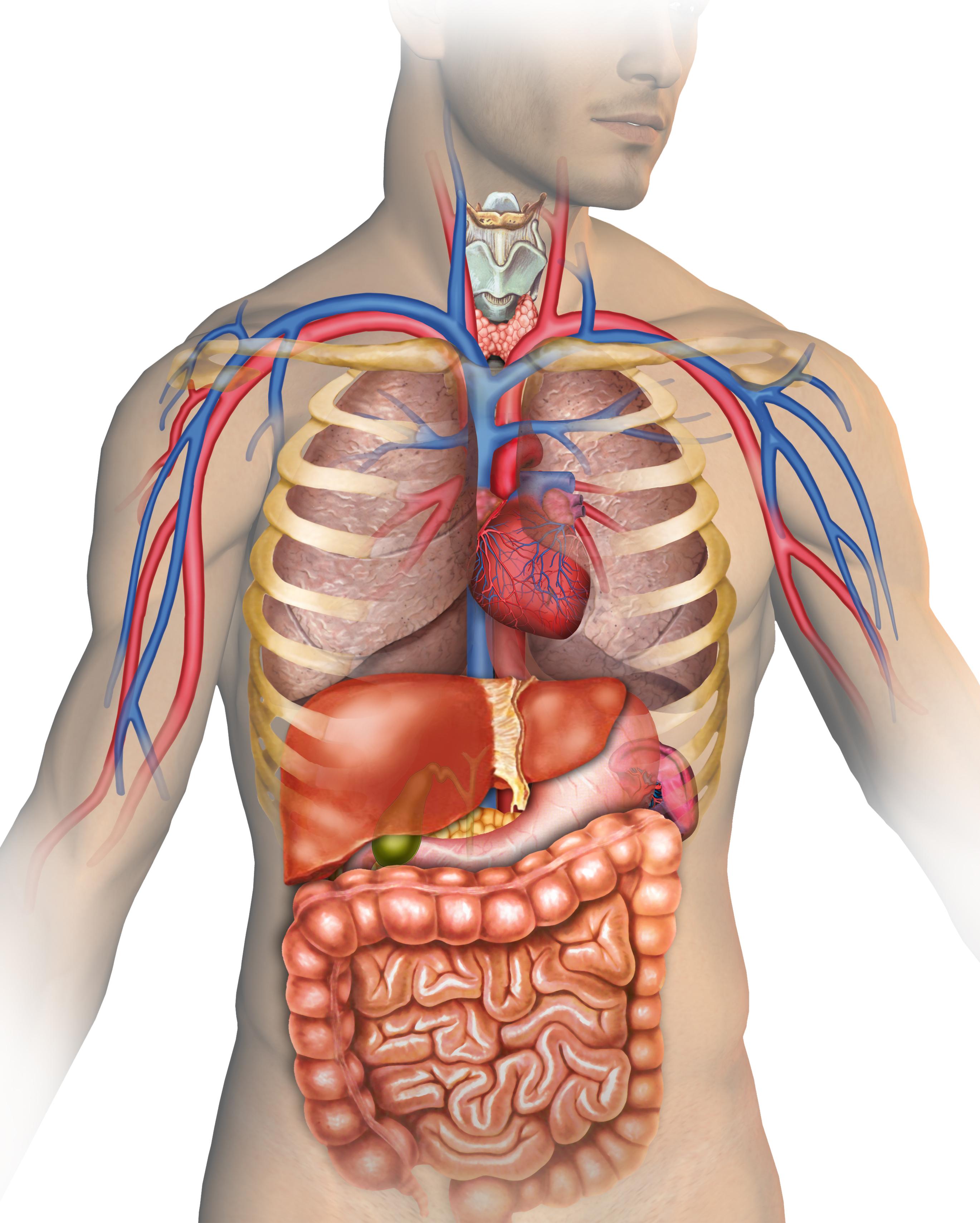 The human body is an incredibly complex and organized system made up of trillions of cells, working together to keep you alive and healthy. Let’s break it down into key systems and their functions:
The human body is an incredibly complex and organized system made up of trillions of cells, working together to keep you alive and healthy. Let’s break it down into key systems and their functions:1. Skeletal System:
Provides structure, support, and protection for organs.
Composed of 206 bones in adults.
Works with muscles to allow movement and produces blood cells in the bone marrow.
2. Muscular System:
Responsible for movement, posture, and generating heat.
Includes skeletal muscles (voluntary movement), smooth muscles (organs), and the cardiac muscle (heart).
3. Nervous System:
Controls body functions and responses.
Consists of the brain, spinal cord, and nerves.
Sends electrical signals to process information and coordinate actions.
4. Circulatory System:
Pumps blood throughout the body, delivering oxygen and nutrients while removing waste.
Includes the heart, blood vessels, and blood.
5. Respiratory System:
Responsible for breathing and gas exchange.
Includes the lungs, trachea, and diaphragm.
Oxygen is absorbed into the bloodstream, and carbon dioxide is expelled.
6. Digestive System:
Breaks down food into nutrients, which the body absorbs for energy.
Includes the mouth, stomach, intestines, liver, and pancreas.
7. Endocrine System:
Regulates hormones, which control metabolism, growth, and reproduction.
Includes glands like the thyroid, adrenal glands, and pancreas.
8. Immune System:
Defends the body against infections and diseases.
Includes white blood cells, lymph nodes, and the spleen.
9. Urinary System:
Removes waste products and balances fluids.
Includes the kidneys, bladder, and urethra.
10. Reproductive System:
Produces sex cells and hormones.
Involved in reproduction and development of offspring.
11. Integumentary System:
Includes the skin, hair, and nails.
Protects against infection, regulates temperature, and senses touch.
10 Ways Your Body Can Tell You Something Is Wrong
What if your body has its own way of asking for help? Some seemingly innocuous cravings or sensations could be hiding important messages about your health. Your ice cream craving or that strange itch may not be so innocent. Here are 10 signs to watch for to better understand what your body is telling you.
A strange sensation in your legs: the hidden syndrome
Do you feel tingling or an irrepressible urge to move your legs, especially at night? It could be restless legs syndrome, a neurological disorder that interferes with your sleep. This often-ignored sign is worth a visit to avoid restless nights.
Thickened skin: when the outside reveals the inside
If your skin becomes thick and itchy, it's not just an inconvenience. It could indicate internal problems like hormonal imbalances or allergies. Don’t hesitate to consult a doctor to have tests done and prevent this symptom from hiding a more serious illness.
Loss of smell and disturbing dreams: neurological clues
A change in your handwriting, recurring nightmares or a loss of smell can suggest early symptoms of Parkinson’s disease. These discreet signs, although intriguing, deserve special attention for an early diagnosis.
Anger and aggression: the mask of depression
Do you often feel angry or aggressive? This behavior could mask depression, much more complex than a simple feeling of sadness. Psychological help can be the key to regaining your emotional balance.
Sleeping too much: fatigue beyond the obvious
Sleeping excessively, or hypersomnia, can reveal an underlying problem such as an autoimmune disease. If you feel sleepy even after a full night of sleep, it’s time to consult.
A ring in the eye: the silent indicator
A white or gray circle around your cornea? This phenomenon, often linked to hypercholesterolemia, could be a sign of excess cholesterol. A lipid profile is necessary to monitor your cardiovascular health.
The call of salt: a disguised deficiency
An irresistible desire for salty foods can signal an iron deficiency, dehydration, or premenstrual syndrome. Enriching your diet and consulting a health professional can help you balance your needs.
Fatigue and forgetfulness: is the thyroid to blame?
A combination of fatigue, forgetfulness, and low libido can indicate a thyroid disorder. The thyroid, a small but important regulator, can be responsible for general malaise if it malfunctions.
An insatiable thirst: a warning signal
Are you always thirsty, despite regular hydration? This could be a sign of diabetes or, in women, a symptom of pregnancy. A medical consultation is necessary to rule out these potential causes.
The desire for ice cream: more than a habit
If you are obsessed with chewing ice cream, it could be linked to an iron deficiency or anemia. A blood test could reveal a lack of minerals, easy to correct with appropriate treatment.
Listen to your body for a more serene life
These signs are not to be taken lightly. Your body has an incredible ability to alert you when something is wrong. Be attentive, consult a professional if necessary, and take care of yourself to live in better health.




